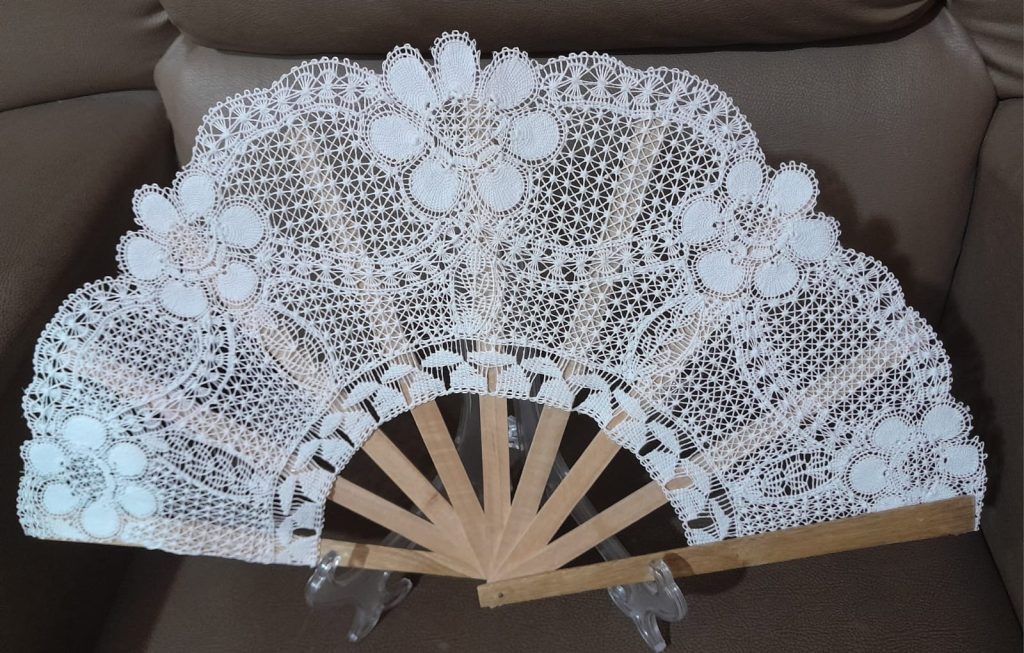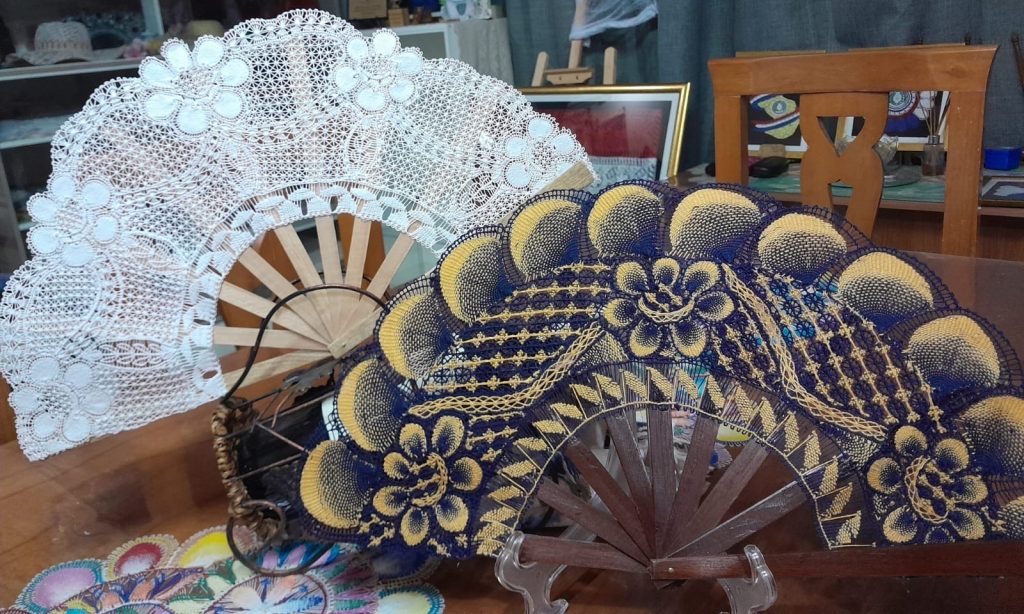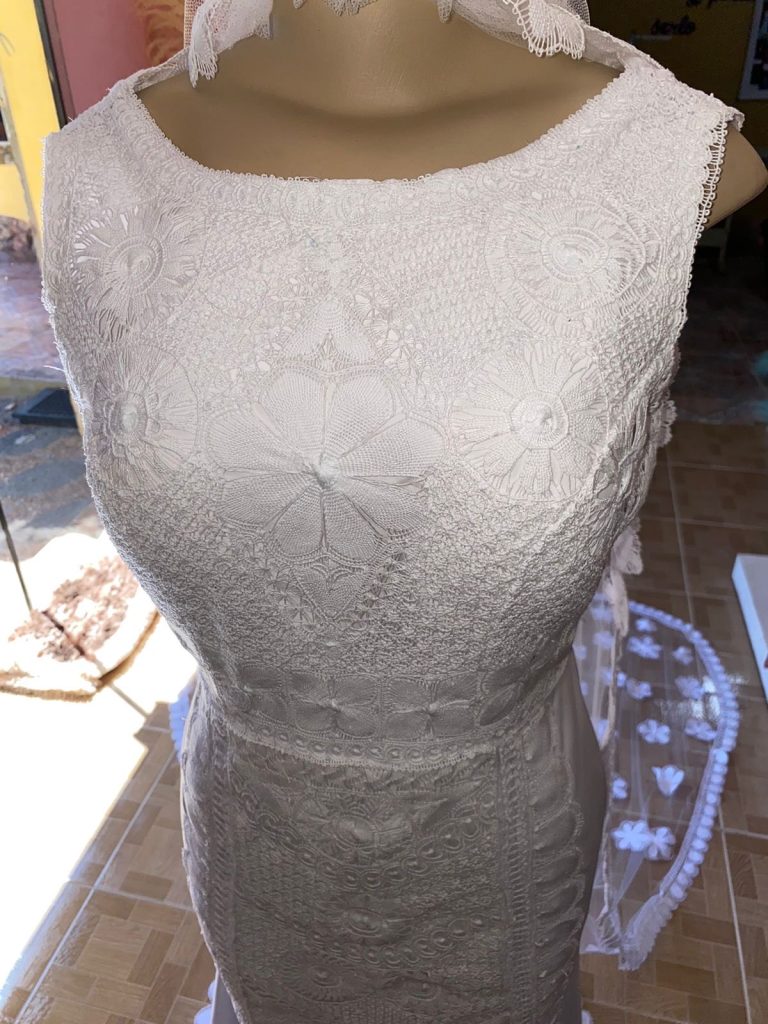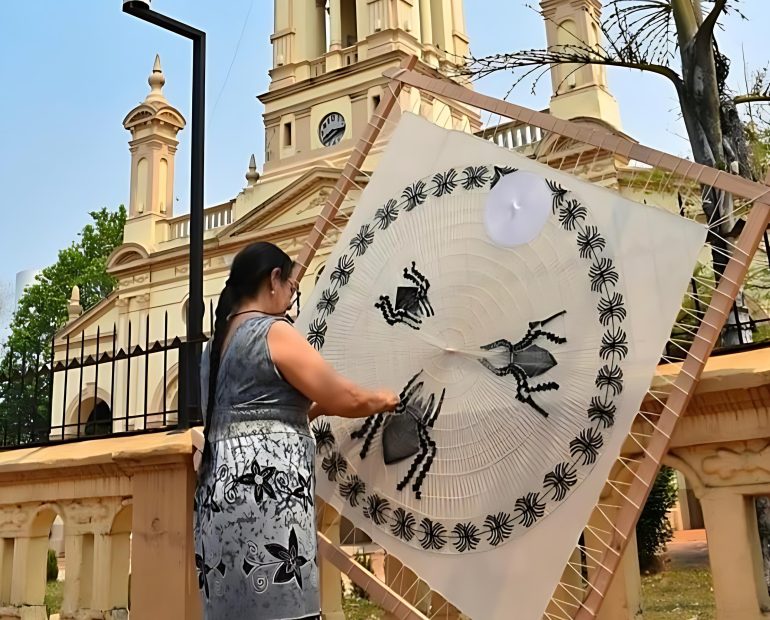In a house in Itauguá, Paraguay, silence echoes the colours covering every inch of the space. It give Norma Báez house its voice back. There, one of the most precious and intricate crafts in Paraguay remains alive.
Norma Báez, an artisan with over fifty years of experience, is one of the most recognised promoters of Paraguayan culture. Not only because of her unique ñandutí lacework, but also for involving young people in the craft, helping to pass on the richness of Paraguayan history.
“My passion has always been my work”
Norma Báez was captivated by traditional Paraguayan lace embroidery since childhood. This craft, typical of the city of Itauguá, stands out for its intricate designs, the use of vibrant colours, and because only a few people master it. Its name, ñandutí, means “spider web” in Guaraní, referring to its web-like patterns.
The process involves tools, such as a hoop or frame used to stretch the fabric over which the embroidery will be done. First, the design is sketched onto the fabric, then the weaving begins, starting with a structure known as the framing (armado) and followed by the filling (rellenado), which completes the design. Later, the fabric is cut so that only the lace remains, it is washed, starched, and any excess fabric is removed. The result is a delicate piece of ñandutí lace.
At the age of eight, Norma Báez would look for ways to join the afternoon weaving sessions held at her grandmother’s house. Watching women, not only relatives, entangled in threads sparked her curiosity, and she would always find some excuse to learn on her own.
Until one day, she gathered the courage to ask her family to teach her. And so, surrounded by hoops and threads, she became part not only of a family tradition, but of the legacy that represents an entire country.
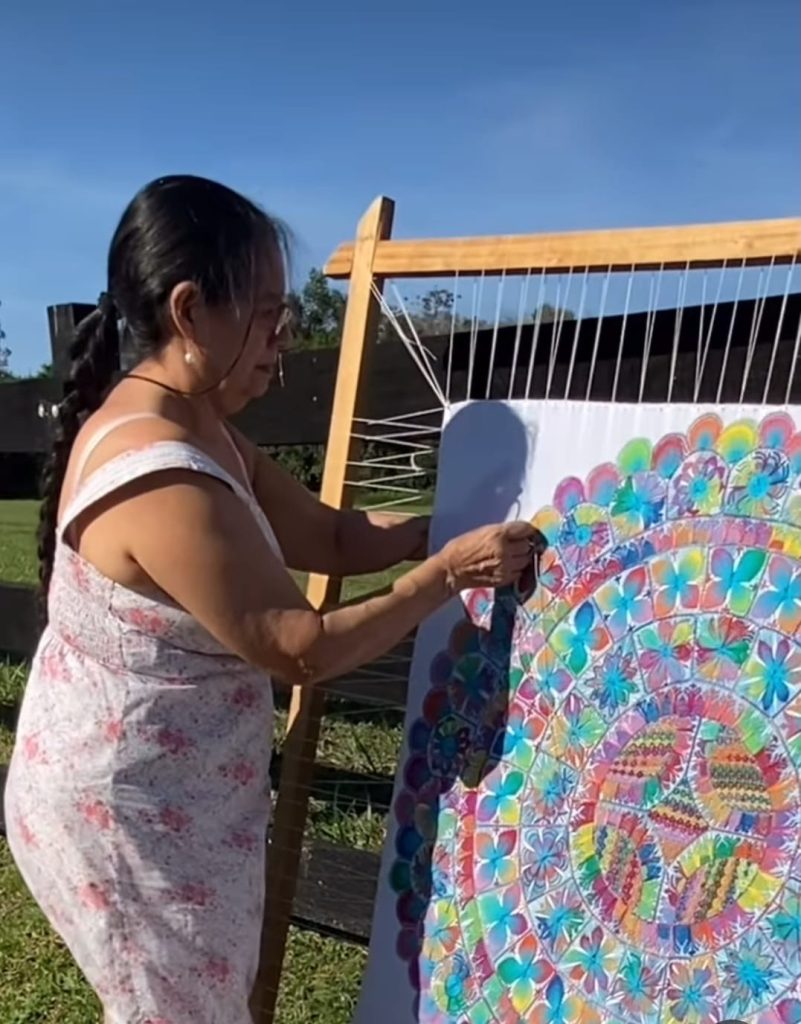
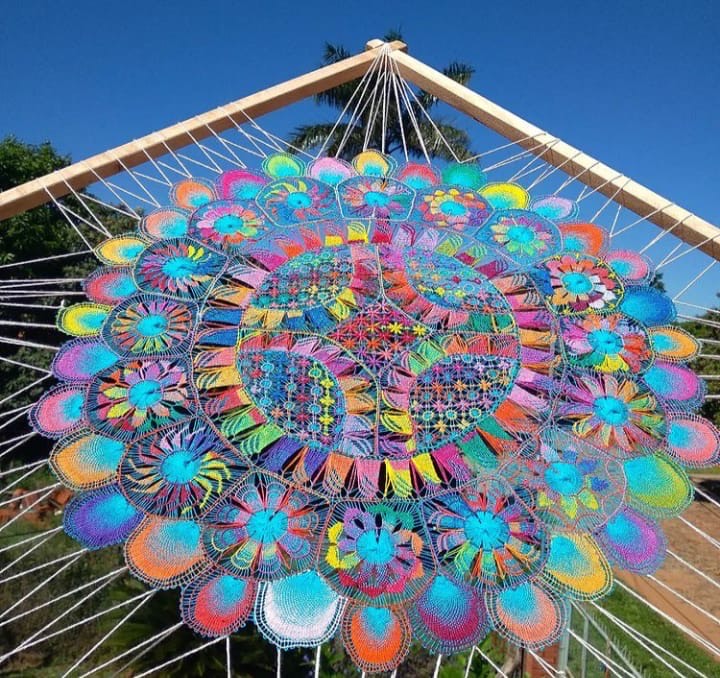
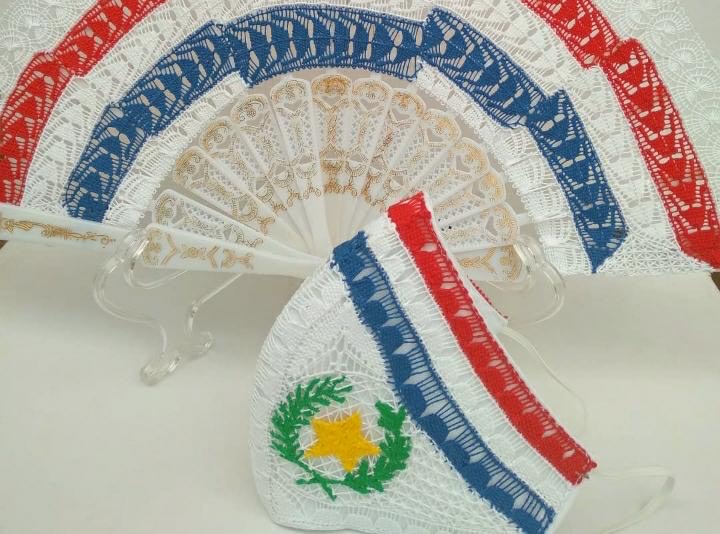
A craft beyond borders
Thanks to her talent and skill, Norma Báez learned about financial independence much earlier than most. Ñandutí became more than a hobby, it turned her into a businesswoman.
Her colourful designs make her stand out, and many people want to own pieces of her art in various forms, especially dresses, handbags, and other accessories. The time required to complete a piece depends on the design, but on average, she can finish one measuring 25 cm in diameter in a single day.
She had the opportunity to teach at a national school for two years, where her 400 students often praised her patience. Norma stood out for valuing the materials provided by the state and for being a strong motivator in her ñandutí classes.
Although she stopped teaching in classrooms due to the pandemic, she still gives private lessons today.
Her work is appreciated both nationally and internationally. In fact, Paraguay’s National Congress, through the Honourable Chamber of Deputies, awarded her a recognition for her invaluable contribution to Paraguayan culture and for upholding craftsmanship as a symbol of national identity.
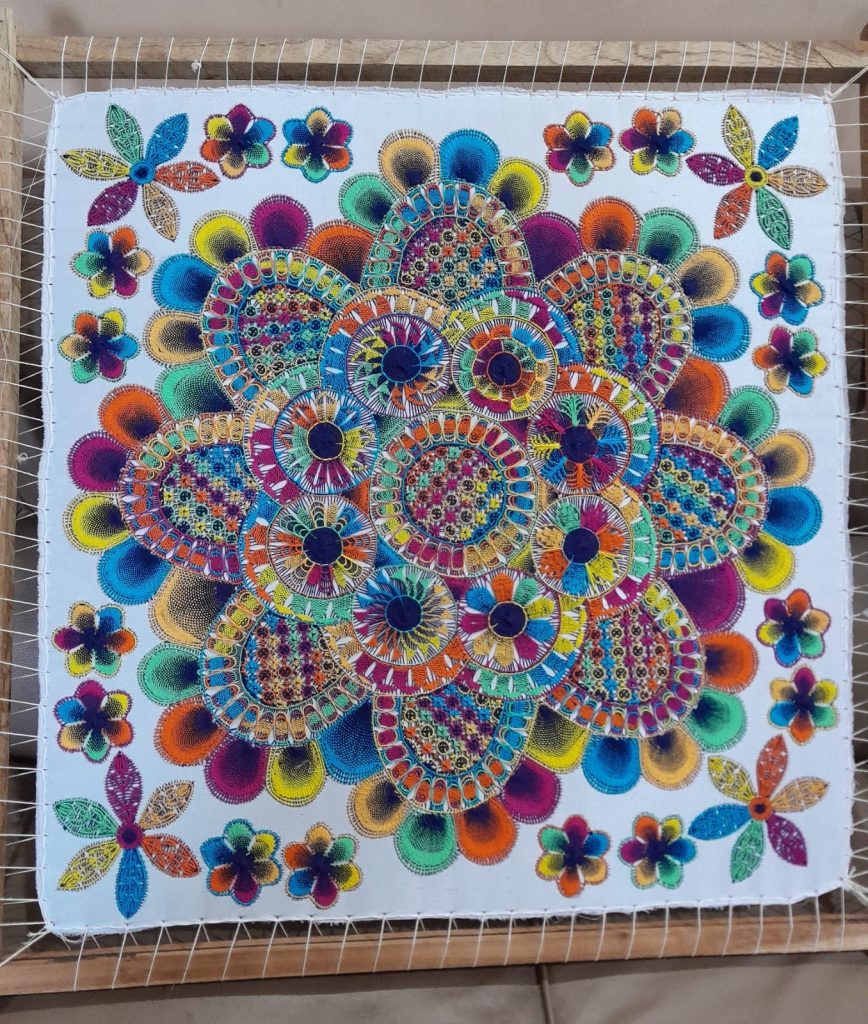
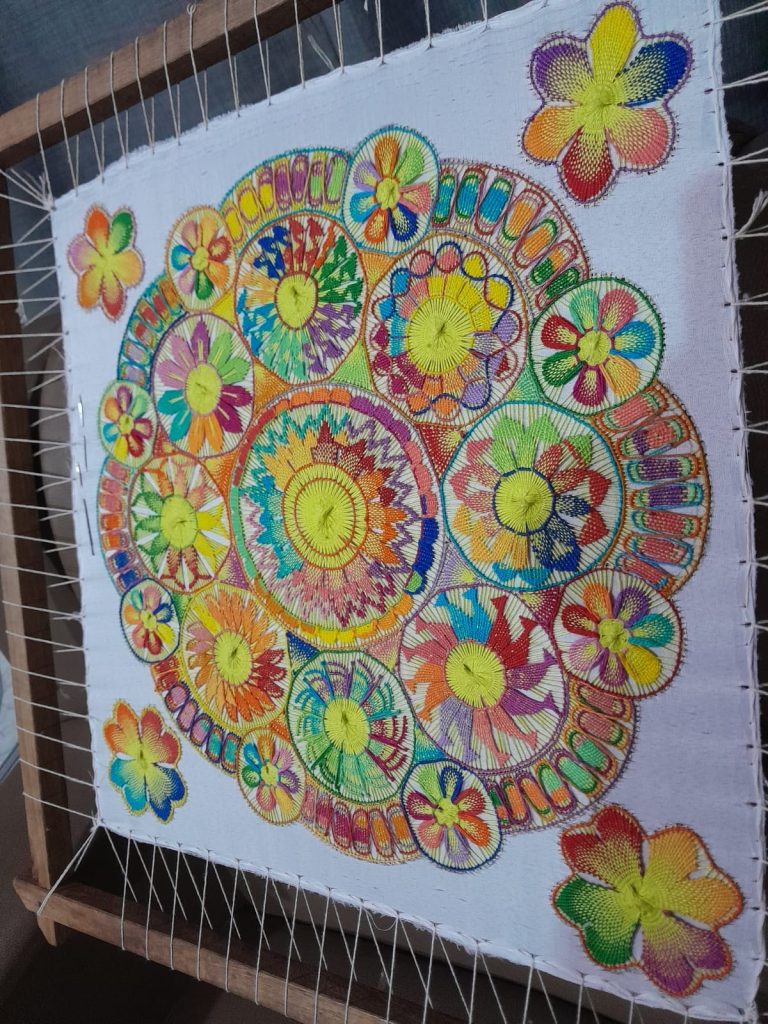
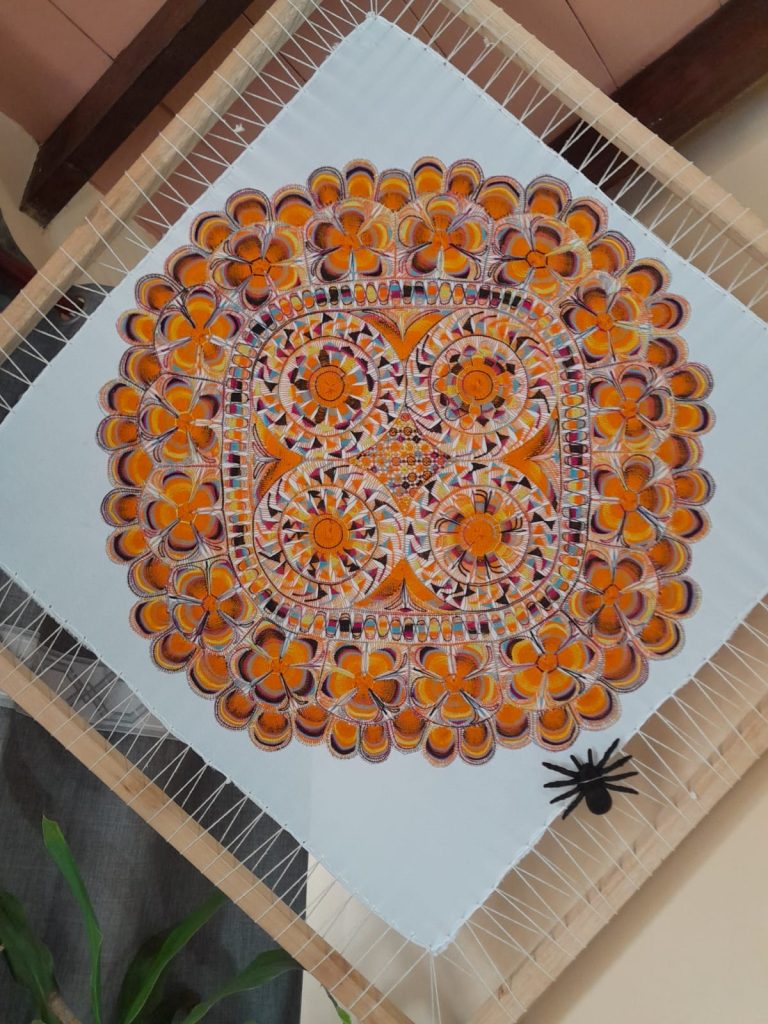
Ñandutí aimed at the next generation
At 62, Norma Báez greatest dream is to find more opportunities to showcase this art, but she does not want to do it alone. “There are many of us artisans. I want everyone’s work to be valued. I want us to work together to inspire young people,” she says.
Among Norma Báez plans to gain more visibility is the biggest project of her life, which she plans to unveil at the National Ñandutí Fair in Itauguá in October 2026. Although this fair is held every year, the scale of this work demands a long and detailed process, which is why she has already started working on it.
One single artisan can preserve a tradition, but when many come together, that tradition becomes a living, strong movement with a future. Norma Báez understands this. That is why she does not just weave: she teaches, she inspires, and she dreams big.
Further reading: Learn traditional Paraguayan crafts with IPA’s workshops.
